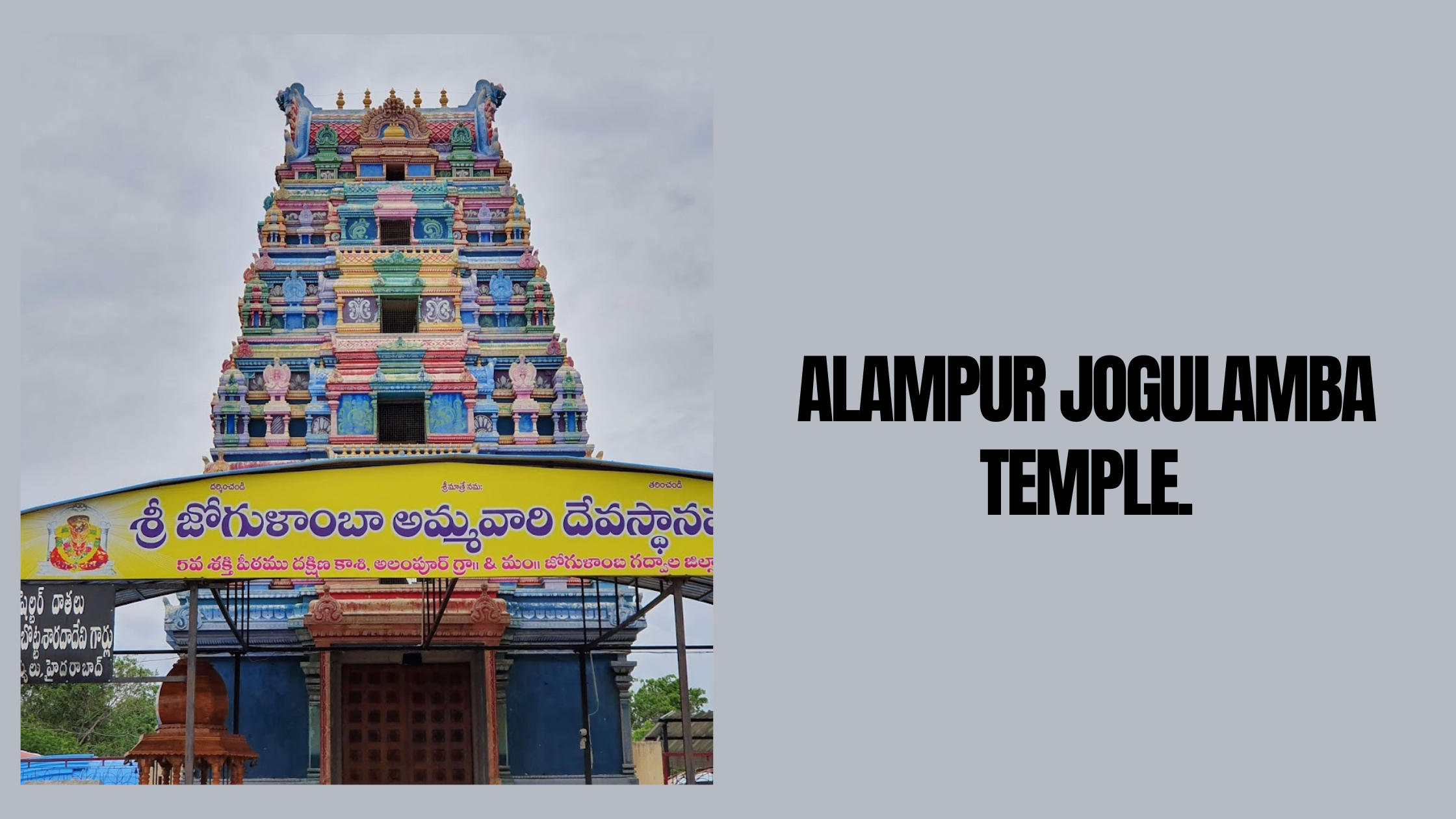Alampur Jogulamba Temple: Situated in the peaceful landscape of Alampur, the Jogulamba Temple stands as an effective Shaktipeetham, revered for its spiritual significance and historical importance. Usually referred to as the Siddhi Devatha in yoga, the temple carries the name of Jogulamba, derived from the Telugu term “Yogula Amma,” signifying the Mother of Yoga. This sacred site boasts two principal deities, Sri Jogulamba Devi and Bala Brahmeswara Swamy (Lord Shiva), signifying the divine union of cosmic energies.
Also Read:
Location and Spiritual Significance
Situated in the Jogulamba Gadwal district of Telangana, Alampur is blessed by the confluence of the Krishna and Tungabhadra rivers, earning it the revered title of Dakshina Kailasam. The temple’s location, just 25 kilometers from Kurnool and 200 kilometers from Hyderabad, makes it a spiritual haven available to devotees desiring divine blessings.
Religious Significance of Alampur Jogulamba Temple
Jogulamba Temple carries a prominent place among the 18 Sakthi Peethams, with the presiding deity considered Maha Sakthi Swaroopini. Sri Jogulamba Devi, depicted seated on a corpse with flowing hair, adorned with a lizard, scorpion, and frog on her head and her tongue stretched out, represents the divine power of transformation and regeneration. The temple complex also houses the revered Nava Brahmeswara Aalayam, adding to its spiritual allure.
Alampur Jogulamba Temple Timings
Devotees can immerse themselves in the divine aura of Jogulamba Temple on all days of the week. The temple opens its gates from 7:00 am to 1:00 pm and reopens from 2:00 pm to 8:30 pm, welcoming worshippers and seekers alike. The temple shows different rituals and pujas, including Abhishekam to Sri Bala Brahmeswara Swamy, Ashtotthara archana, Chandi Homam, and special pujas on specific days. The sacred ceremonies contribute to the spiritual vibrancy of the temple, promoting an atmosphere of devotion and reverence.
History of Alampur Jogulamba Temple
Constructed in the 6th century by the Chalukyan rulers, the Jogulamba Temple bears testament to the Badami Chalukyan architectural style. Despite facing destruction during the 14th-century Bahmani Sultanate attack, the moola virats of Jogulamba Devi, Chandi, and Mundi were safeguarded in the nearby Bala Brahmeswara Temple. The reconstruction and punah prathistha of the moola virat took place in 2005, reforming the temple to its former glory.
How to Reach Alampur Jogulamba Temple
For those seeking spiritual relief, Alampur is accessible by air, with the nearest airport being Rajiv Gandhi International Airport in Hyderabad. Travelers can also opt for road transport, and frequent buses connect Alampur with nearby locations, including Kurnool and Hyderabad.
Festivals and Celebrations
The Jogulamba Temple becomes active during festivals such as Maha Sivarathri and Sarannavarathri (Dasara), where the vibrant festivities and Kanya Pooja attract devotees from far and wide. Special pujas and utsavams mark the Kartikamasam, improving the spiritual fervor of the temple.
Immerse yourself in the divine aura of Alampur Jogulamba Temple, where history, spirituality, and architectural splendor converge to create a sacred haven for seekers of truth and devotion.

